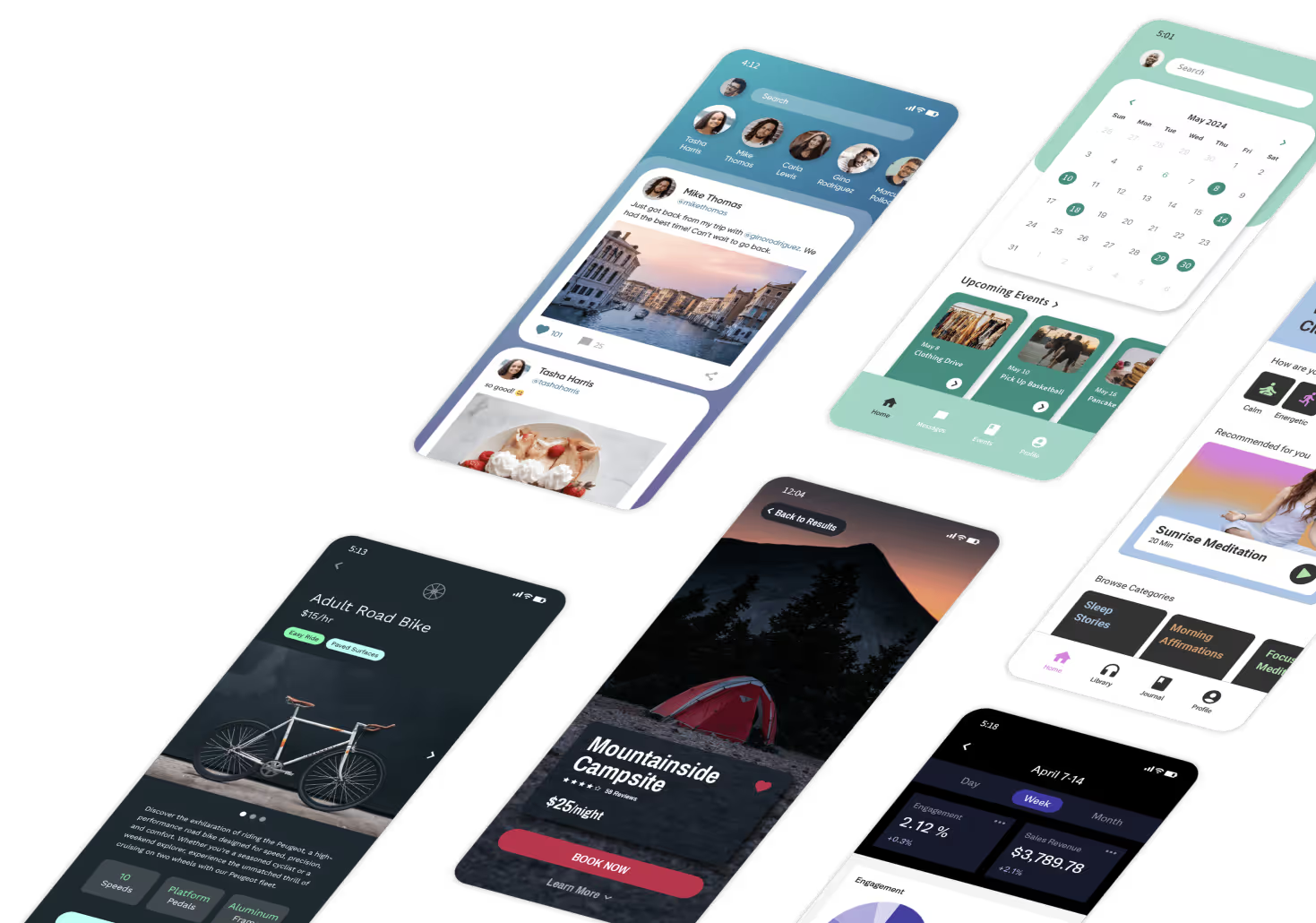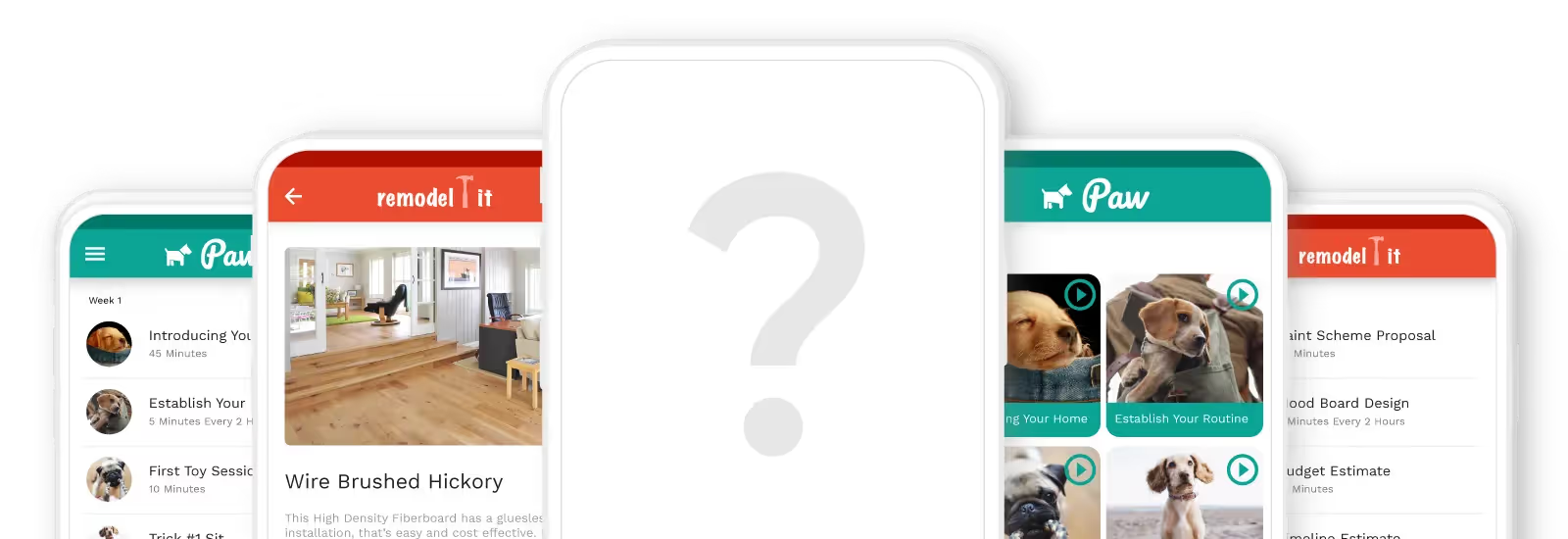Who doesn't want to set up a side income if you've got the time? You may want to save up for a car, or you want to take a break year. Maybe you just want options! Not to mention, you can become "your own boss," work from a beach house in shorts, and at the same time, there is no limit to how much you can earn. You possess control of your growth. That's where no-code freelancing comes in.

Never before has it been so easy to offer so many services to clients!
No-code technology is based on the idea that technology should make software development more accessible and not be a barrier to entry. This is how you build software without coding – using a visual, drag-and-drop interface, you can build apps, websites, and more.
But apart from just building technology to bring your ideas to life, no-code has created opportunities to build software for clients faster and more efficiently than ever. Since custom technology is much easier to access, the focus has shifted from technical work to creativity, problem-solving, design, innovative business models, and user-centricity.

The Financial Opportunity Created by No-code Freelancing
No-code offers a paradigm shift in software development. It has 'leveled the playing field' as far as software development goes, which means there are more people and agencies to meet the increasing demand.
Many beneficiaries of no-code technology need more time, willingness, and capability to build the tools they need. For example, most organizations, startups, or individuals that need an app may need more time and skills to build it themselves. The high cost of app development also prevents them from pursuing their ideas. No-code freelancing has changed that.
It offers a more affordable price point for software development and increases the supply of people that can create software. More agencies and freelancers proficient in no-code building can then leverage this opportunity for financial gain.
Freelancing in the Adalo Ecosystem
While a tool like Adalo is easy to learn, there are many makers that may not have the time or inclination to build an app on their own. In some instances, they may require a more complex app that needs time and effort to build. Often in such cases, Adalo makers seek assistance in building, marketing, designing, and maintaining their apps.
This has pioneered a vibrant ecosystem of no-code freelancing services. Here are some examples.
- Design expertise on Adalo: You can get assistance from an Adalo Expert that specializes in design if you have an excellent idea for an app, but need to know if you have the know-how to create the user experience and interface that you want.
- App building: The Adalo Experts program primarily focuses on building apps for clients. You can get an expert's help to build features for your app, or get an app built from start to finish.
- Quality control and maintenance: Need some bug fixes? You can get assistance with the ongoing app maintenance from an Adalo Expert. This will include regular QA and QC work, and can extend to adding new features.
- Linking with APIs: Adalo Experts can help you with custom actions, or backend engineering for external collections using Xano, Google Sheets, or Airtable for the database. Additionally, you can automate actions on your app using Make or Zapier.
No-code Freelancing Trends of 2023

The early bird will get the worm.
The low barrier to entry means that many freelancers will likely cluster together around expected product offerings. This creates high competition and will lead to narrowing down of specializations and expertise (think, Adalo x Zapier experts or Adalo x Xano experts). It will also create more opportunities for agencies to form that have multi-specialty software makers in-house.
The good news is that those who find their way into these gaps first, the early movers, have the potential to be dominant players.
The rising no-code tide will raise many ships.
The line between code and no-code is getting increasingly blurred. With custom-coded components and marketplaces for components, there are many opportunities for traditional software developers to join the no-code ecosystem.
The public is becoming more open to no-code solutions, and Adalo makers benefit greatly from having some coding knowledge. Those on the fringes of the no-code ecosystems – designers, developers, UX specialists, and marketing professionals – will stand to gain from no-code's increasing popularity.
The market will lean toward an open ecosystem.
No-code needs to provide a unified ecosystem to achieve its maximum potential. This means that splitting into Mac vs. PC-style ecosystems will only slow down the pace of growth and confuse the market.
No-code will lean further into integration
While no-code is already headed this way, in the future, integration tools like Zapier and Make will provide more opportunities to link no-code services together. This will allow freelancers and makers to do more with no-code software.
There may be more intangible differentiators between you and your competition.
No-code freelancers and agencies that succeed in a busy marketplace with many competitors will distinctly differentiate themselves. Think good branding, a slick website, consistent content marketing, excellent customer service, and an impressive portfolio.
Many makers hire freelancers because they have a problem they can't solve; they're expecting someone to come in and solve it for them. Those who gain trust quickly will stand a chance to get hired. An easy way to do this is by establishing yourself as a thought leader.
What this means for agencies and freelancers
It's time for no-code to take center stage in software development. Anyone that rides this wave stands to gain from no-code's evolution. If you're interested in learning how to build apps without coding, there are plenty of tutorials on the Adalo App Academy to help you get started. For those that have experience with no-code tools like Adalo, and want to monetize their skills by becoming an Adalo Expert, now is the best time to get started!














